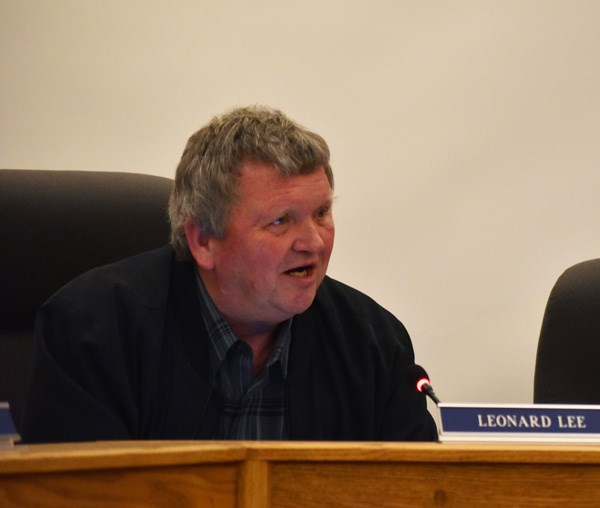Community associations representing Madeira Park and Wilson Creek are taking different views of proposals to change the names of the two unincorporated communities.
The province’s Geographical Names Office is considering proposals to change the official name of Maderia Park to salalus and Wilson Creek to ts'uḵw'um, as part of commitment in the Foundation Agreement between the province and the shíshálh Nation.
The names office is also reviewing proposals to rename Wilson Creek itself and Saltery Bay.
At its March 11 meeting, the Davis Bay – Wilson Creek – Selma Park Community Association passed a motion indicating they had no objection to the renaming and calling it “a positive step toward reconciliation.”
The Pender Harbour Area Residents Association (PHARA) recently conducted an online survey and in a March 11 letter to the Sunshine Coast Regional District (SCRD), the group said it opposes a name change for Madeira Park.
“One cannot deny that shíshálh Nation people lived here before non-Indigenous people. However, there is also a newer history of the land, one that began with Indigenous and non-Indigenous settlement and that too deserves recognition,” the PHARA letter says.
“For both Indigenous and non-Indigenous people who live in the area, the name Madeira Park holds a much more significant heritage value than salalus.”
The PHARA letter also says the group is “looking forward to undertaking this process of consultation with all parties: the province, the shíshálh Nation, the SCRD and local community representatives, while developing a mutually acceptable solution to a proposal that could become a setback in the reconciliation movement we are trying so desperately to achieve.”
Area A’s Advisory Planning Commission (APC) has also weighed in. APC minutes brought forward at the SCRD’s March 12 planning committee meeting said, “The APC would like to comment that they are opposed to the name change Madeira Park to salalus and feel there has been no consultation with the community.”
A spokesperson with the Heritage Branch of the Ministry of Forests, Lands, Natural Resource Operations and Rural Development (FLNRORD) told Coast Reporter that about 30 members of the general public have contacted the Geographical Names Office with their opinions as well.
However, FLNRORD now says the public should direct comments not to the names office, but their local government “to ensure that their response reflects their community’s.”
“This is an important step in the process when considering names for unincorporated communities,” the spokesperson said. “The decision to change a name requires strong community support, which is why the applications take time to review… Geographical names reflect stories and history on the land; using the Indigenous name of the place respects the much deeper history of the place.”
Both Sechelt and the SCRD are still considering their responses, and to that end SCRD chief administrative officer Dean McKinley told directors at the March 12 meeting that a FLNRORD representative has “proactively” offered to attend an upcoming meeting to “explain the difference in process between the dual-language highway signs and what is a far more robust process around the potential name changes,” as well as opportunities for input.
McKinley said SCRD staff have expressed to both FLNRORD and the Ministry of Transportation and Infrastructure (MOTI), which is responsible for the highway sign project, “that there’s a strong feeling of being under-communicated with.”
Area A director Leonard Lee described the offer to give a presentation as “good news.”
“I really believe the solution to this is one that should have been already in place and we should have a stakeholder working group that’s joint provincial, shíshálh Nation, the SCRD and some public representation and other stakeholders,” Lee said.
“The whole issue is the fact that the local perspective isn’t being given during the planning stages and therefore the planning stages should not only define the actual reconciliation project, but also how it’s rolled out… [It should be] rolled out in a friendly and coordinated manner that everybody can celebrate.”
Other directors said they felt a MOTI representative should also attend, and Gibsons director David Croal and Area E’s Donna McMahon suggested including the Squamish Nation, which worked with the province in the lead-up to the 2010 Olympics to have dual-language signs on the Sea-to-Sky Highway.
Lee said PHARA also sent a letter addressing the sign project, saying it would “be good to have consistency” through Squamish, shíshálh and Tla’amin territory “so that our travellers are presented with common way-finding signs all the way down the highway.”
“That’s one of the things that if they had consulted with the SCRD and the local people, that would probably have been part of the consideration on the sign design, and I’m not sure we shouldn’t just ask for the signs to be delayed until it’s fixed. But hopefully that discussion will be happening as well,” Lee said.
The Area A APC has also weighed in on the sign project, recommending the design be changed to have English names on top.
A firm date for the FLNRORD presentation to the SCRD board is still to be set, but it could be as early as March 26. The Geographical Names Office has requested responses from local governments before April 23, but that date is not a hard deadline.
According to its own guidelines, the names office “may defer the decision to adopt a geographical name if research yields conflicting or inconclusive results, or adoption of a name is not in the interest of the public at large.”
– With files from Sophie Woodrooffe



